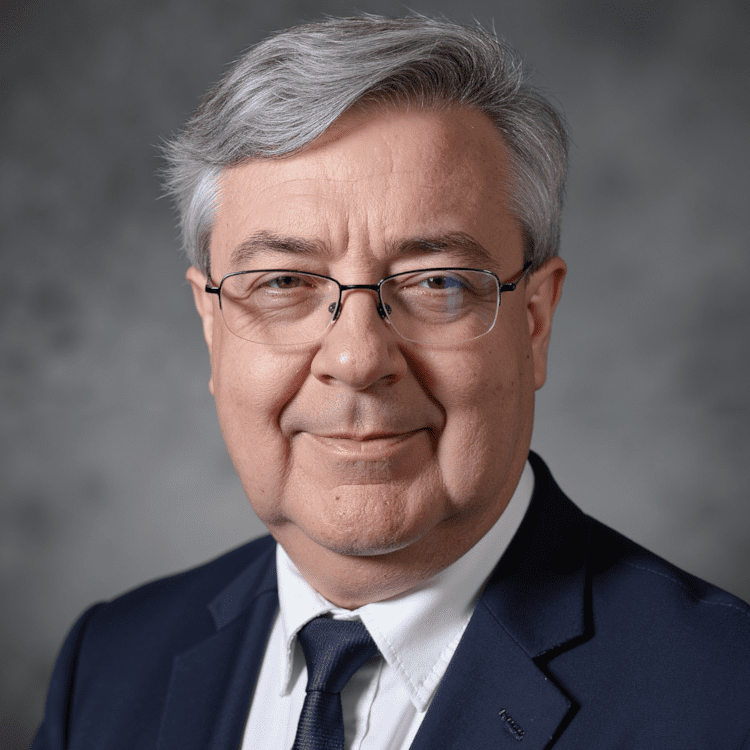Relating Healthcare Practice to the Mission of God: A Theological Perspective
In healthcare, professional excellence transcends vocational duty, becoming an act of worship that glorifies God through compassionate care. This aligns with Paul’s instruction in 1 Corinthians 6:19-20 that our bodies are temples of the Holy Spirit. By integrating faith into practice, healthcare professionals participate in the missio Dei—the mission of God—serving as conduits of His physical and spiritual healing and restoration. This perspective affirms the inherent worth of all individuals and underscores the sacred calling of caregiving.
Through this theological lens, every patient interaction becomes an opportunity to participate in God’s redemptive work. This transforms healthcare from merely a career to a divine calling where practitioners encounter both human suffering and God’s presence.
Participation in the Missio Dei: Healthcare as Joining God at Work
The concept of missio Dei fundamentally reshapes our understanding of healthcare practice. This framework recognizes that God actively works to redeem and restore creation, inviting His people to participate. Healthcare professionals occupy a unique position in this narrative of God’s work in the world, bridging science and compassion.
The missio Dei perspective reveals that God’s healing work encompasses physical, emotional, social and spiritual restoration. Jesus demonstrated this comprehensive approach throughout His ministry, addressing both physical ailments and spiritual brokenness (Mark 2:1-12), while also restoring social belonging (Luke 8:43-48).
Healthcare professionals participate in the missio Dei when they:
- Recognize divine purpose in their work as gifts from God for serving others
- Practice with eschatological (future focus) vision, working in present reality while glimpsing future restoration (Revelation 21:4)
- Embrace kingdom values of justice, compassion, and dignity
- Serve as agents of reconciliation between patients and their bodies, communities, and God
This participation manifests in daily moments of care: the adjustment of a pillow, explaining treatment options, or advocating for vulnerable patients. Each intentional act becomes participation in God’s healing work.
Theology of Worship: Embracing Holistic Service
True worship extends beyond church services to permeate all aspects of life. Romans 12:1-2 urges believers to present their bodies as living sacrifices—true worship. For healthcare professionals, excellence in practice becomes devotion to God.
The covenantal nature of worship emphasizes a relationship with God reflected in patient care. As image-bearers, healthcare workers mirror God’s compassion, transforming routine tasks into sacred acts.
When healthcare professionals approach work as worship:
- Mundane procedures become sacred rituals
- Professional relationships become opportunities for communal worship
- Technical excellence becomes spiritual discipline, reflecting the Old Testament principle of unblemished sacrifices (Leviticus 22:20-22)
- Patient encounters become holy moments where Christ is served (Matthew 25:40)
This theological perspective invites healthcare professionals to view their workday as extended devotion, transforming medical facilities into sanctuaries where God’s presence is honored through excellent care.
Theology of Vocation: Healthcare as Divine Calling
A robust theology of vocation frames healthcare practice as a response to God’s call. The concept of vocation—from vocare, “to call”—suggests God invites individuals into particular service aligned with His purposes and their gifts.
Martin Luther expanded vocation beyond religious orders to include all honest work serving others. This “priesthood of all believers” elevates healthcare professions to spiritual significance equal to formal clergy ministry. Healthcare professionals thus recognize their work as a divine appointment rather than merely a chosen career.
Biblical principles informing healthcare vocation include:
- Divine appointment of skills, like Bezalel (Exodus 31:3)
- Stewardship of gifts, as in the parable of talents (Matthew 25:14-30)
- Partnership with God as “co-workers in God’s service” (1 Corinthians 3:9)
- Integration of faith and work (Colossians 3:23-24)
This vocational understanding transforms healthcare from a career defined by professional standards to a calling characterized by divine purpose and eternal significance.
Theology of the Laity: The Priesthood of All Believers in Healthcare
The theology of the laity challenges the division between “sacred” and “secular” vocations, affirming that all believers are called to ministry (1 Peter 2:9). This has profound implications for healthcare professionals who may not view their work as traditional ministry.
The early church model in Acts shows believers serving according to their gifts, all participating in God’s mission. Similarly, healthcare practitioners function as ministers within their professional spheres, continuing Jesus’ commission to heal and proclaim the kingdom (Luke 9:2).
This framework empowers healthcare professionals to:
- Recognize their ministerial identity as “priests” mediating God’s healing
- Exercise spiritual authority addressing physical, emotional, and spiritual dimensions
- Bridge institutional divides while maintaining distinct roles in spiritual care
- Integrate professional practice with spiritual gifts
A theology of the laity perspective affirms that clinical settings are sacred spaces where God works through His called servants. As Paul explains in Ephesians 4:11-12, church leaders exist “to equip his people for works of service,” supporting healthcare professionals in their ministry.
Theology of Aging: Honoring the Journey of Life
Scripture portrays aging as a blessing and testament to divine favor: “Gray hair is a crown of glory; it is gained in a righteous life” (Proverbs 16:31). In healthcare, professionals are entrusted with caring for the elderly, recognizing their intrinsic value and wisdom.
Biblical teaching on the topic of aging challenges cultural idolization of youth, emphasizing the unique spiritual gifts of advanced years. Isaiah 46:4 captures God’s commitment throughout aging: “Even to your old age and gray hairs I am he… I will sustain you.” This reveals that God’s relationship with humanity transcends youth or productivity—a truth that should inform geriatric care.
Healthcare professionals who integrate this biblical perspective demonstrate reverence by:
- Listening attentively to patients’ stories and wisdom
- Advocating for treatments maintaining dignity and autonomy
- Creating environments honoring preferences and needs
- Recognizing spiritual resources patients bring to their healing process
This approach provides a countercultural witness to the enduring value of human life at every stage.
Theology of Dementia: Upholding Personhood Amidst Cognitive Decline
A theology of dementia emphasizes that personhood and the imago Dei (the image of God) remain intact despite cognitive decline. This counters societal tendencies to devalue individuals based on mental acuity, asserting that worth is inherent and God-given.
Healthcare professionals approach dementia care with profound respect, recognizing that spiritual needs persist and may intensify as cognitive functions wane. Engaging patients through familiar spiritual practices provides comfort and continuity with their faith journey.
The theological understanding that human identity is held in God’s memory offers profound comfort. Psalm 139:1-6 affirms that God’s intimate knowledge transcends self-awareness. Isaiah 49:15-16 declares that God has “engraved you on the palms of my hands,” suggesting divine remembrance perseveres when human memory fails.
This transforms dementia care from a compensatory approach focused on deficits to a ministry of presence honoring continuing personhood and spiritual journey.
Theology of Disability: Celebrating Diversity in God’s Creation
Disability theology challenges conventional notions of normalcy, celebrating human diversity as reflective of God’s creative genius. It posits that disabilities are not aberrations but variations contributing to the richness of human experience. All individuals, regardless of abilities, bear God’s image and have unique contributions.
For healthcare professionals, this theology shifts from a deficit-based model to one recognizing strengths and potential. It encourages inclusive practices that accommodate diverse needs, embodying biblical mandates to love all members of society.
Jesus’ healing of the man born blind (John 9:3) provides crucial insight: “Neither this man nor his parents sinned… but this happened so that the works of God might be displayed in him.” This challenges assumptions that disability represents divine punishment, suggesting different abilities can reveal God’s work.
Healthcare professionals who embrace this biblical teaching:
- Advocate for person-centered care respecting autonomy and dignity
- Design accessible environments enabling full participation
- Recognize expertise individuals with disabilities bring to their healthcare
- Challenge stigmatizing attitudes within healthcare systems
This perspective transforms practitioners into agents creating communities where diversity of ability is celebrated rather than merely accommodated.
Professional Excellence as Spiritual Discipline: The Sacred in the Technical
While technical competence and clinical excellence are valued in healthcare for practical reasons, they take on deeper significance when viewed through a theological lens. The pursuit of excellence in healthcare becomes a spiritual discipline—a structured way of opening oneself to God’s presence and work.
Attention to Detail: Reflecting Divine Precision
Meticulous attention parallels God’s careful attention to creation. Psalm 139:13 describes how God “knit me together in my mother’s womb,” suggesting divine precision. Healthcare professionals mirror this attentiveness through accurate medication calculations, monitoring vital signs, and following protocols. This becomes prayer when practiced with awareness of its theological significance.
Continuing Education: Stewarding Knowledge and Skill
Commitment to lifelong learning reflects biblical stewardship. The parable of talents (Matthew 25:14-30) illustrates developing what has been entrusted to us. Healthcare professionals steward knowledge and skills as spiritual practice when:
- New knowledge is received as a gift from God
- Learning is pursued with humility
- Skills are developed for enhanced service
- Integration of practices is undertaken with discernment
Paul’s exhortation to “present yourself to God as one approved” (2 Timothy 2:15) applies equally to handling medical knowledge.
Quality Improvement: Participating in Ongoing Creation
Quality improvement initiatives reflect the understanding that God’s creation is dynamic. The Genesis account depicts God evaluating His work as “good” (Genesis 1:4, 31), suggesting divine assessment. Healthcare professionals similarly evaluate and improve practices as participation in God’s ongoing creative work.
As spiritual discipline, quality improvement involves:
- Prayerful reflection on current practices
- Communal discernment of needed changes
- Humble implementation of new approaches
- Grateful celebration of improvements
This transforms quality improvement from regulatory requirement to sacred practice aligning with God’s healing intentions.
Compassion Care: The Healing Ministry of Christ
Compassion Care mirrors God’s healing nature. Jesus’ ministry demonstrated deep empathy—weeping with mourners (John 11:35), touching the untouchable (Mark 1:40-42), and healing the brokenhearted (Luke 4:18). The Greek word for compassion, σπλαγχνίζομαι (splanchnizomai), denotes a visceral response, suggesting the deep empathy of true compassion involves being moved by another’s pain.
Compassionate healthcare reflects Jesus’ role as the Suffering Servant who bore our pain (Isaiah 53:4). The Hebrew word here is נָשָׂא (nasa), to lift, carry, or bear. In ancient Hebrew culture, the concept of bearing or carrying was significant both physically and spiritually. Physically, it referred to the act of carrying loads or burdens, which was a common part of daily life. Spiritually, it extended to the idea of bearing responsibility or guilt, and the act of forgiveness was seen as lifting or removing that burden. Healthcare professionals participate in this divine work by addressing holistic needs.
The theological foundation of Compassion Care lies in the incarnation—God entering human experience through Christ. This incarnational approach requires vulnerability while maintaining appropriate boundaries, transforming clinical encounters from transactions to sacred meetings where healing presence can be experienced even when cure is impossible.
The Caregiving Mission: Joining God’s Redemptive Work
The Caregiving Mission invites participation in God’s redemptive plan by embodying His love in healthcare. Jesus described His mission as healing the sick, binding up the brokenhearted, and proclaiming freedom (Luke 4:18-19). This call extends to all believers in caregiving roles.
Professional excellence becomes an expression of spiritual devotion. When practitioners pursue education, uphold ethics, and advocate for patients, they reflect God’s justice and mercy. Globally, faith-based healthcare professionals expand access to quality care through clinics, training, and community health initiatives that testify to Christ’s healing power.
The Caregiving Mission is eschatological—anticipating the complete healing promised in God’s kingdom. While healthcare professionals cannot eliminate all suffering, their work provides glimpses of the restoration promised in Revelation 21:4. This eschatological perspective offers both hope and humility, acknowledging the tension between the “already” and “not yet” of God’s kingdom.
Conclusion: A Call to Worship Through Care
Healthcare is a divine calling aligned with God’s mission of healing and restoration. Excellence in practice becomes worship that honors God and reflects His love. By integrating Compassion Care and the Caregiving Mission, practitioners affirm the dignity of every patient as bearing God’s image (Genesis 1:27).
Theologies of worship, vocation, laity, aging, dementia, and disability provide biblical foundation for understanding caregiving as sacred participation in God’s work. Serving with skill and empathy becomes an offering to God, transforming healthcare into ministry. The pursuit of excellence through attention to detail, education, and quality improvement becomes a spiritual discipline.
In a world of suffering, believers are called to be Christ’s hands and feet (Matthew 25:35-40). By embracing their role in God’s mission, healthcare professionals offer not only medical care but spiritual comfort, dignity, and glimpses of God’s kingdom. Through their work, they participate in the sacred task of healing, testifying that true restoration comes from God alone.
This integration of faith and practice invites practitioners to embody the gospel through excellence, compassion, and respect for human dignity, fulfilling their calling to be salt and light (Matthew 5:13-16), witnessing to Christ’s healing power through word and deed.
References
- Basting, A. D. (2009). Forget Memory: Creating Better Lives for People with Dementia. Johns Hopkins University Press.
- Bock, I. (2016). For the Glory of God : Recovering a Biblical Theology of Worship. Baker Academic.
- Brown, W. P. (2015). Sacred Sense: Discovering the Wonder of God’s Word and World. Eerdmans.
- Byock, I. (2013). The Best Care Possible: A Physician’s Quest to Transform Care Through the End of Life. Avery/Penguin Group
- Curlin, F. A., & Tollefsen, C. O. (2021). The Way of Medicine: Ethics and the Healing Profession. University of Notre Dame Press.
- Kapolyo, J. (2013). The Human Condition: Christian Perspectives Through African Eyes. Langham Global Library.
- Keck, D. (1996). Forgetting Whose We Are: Alzheimer’s Disease and the Love of God. Abingdon Press.
- McFadden, S. H. (2011). Aging Together: Dementia, Friendship, and Flourishing Communities. Johns Hopkins University Press.
- Mitra, S.. (2020). Disability, Health, and Human Development. Saint Philip Street Press.
- Swinton, J. (2012). Dementia: Living in the Memories of God. Eerdmans.
- Vanier, J. (1985). Man and Woman He Made Them. Paulist Press.
- Van Opstal, S. The Mission of Worship. InterVarsity Press.
- Volf, M. (2021). The End of Memory: Remembering Rightly in a Violent World. Second Edition. Eerdmans.
- Yong, A. (2011). The Bible, Disability, and the Church: A New Vision of the People of God. Eerdmans.

Dr. Curt Watke is a distinguished missiologist whose three-plus-decade-long career has significantly impacted Christian mission work in North America, particularly in under-reached and challenging regions. Holding a Ph.D. in Evangelism and Missions, Dr. Watke has focused on bridging cultural gaps and fostering sustainable Christian communities by developing innovative strategies that address contemporary challenges like globalization, urbanization, and religious pluralism. His emphasis on cultural sensitivity and contextualization in mission work is reflected in his collaborative writings, including notable works such as “Ministry Context Exploration: Understanding North American Cultures” and “Starting Reproducing Congregations.” Beyond his writing, Dr. Watke is a sought-after speaker and educator, lecturing at seminaries and conferences worldwide, and his teachings continue to inspire and equip new generations of missional leaders. His enduring legacy is marked by unwavering dedication to the mission of God and a profound influence on missional thought and practice. Dr. Watke serves as President and Professor of Evangelism & Missiology at Missional University.




